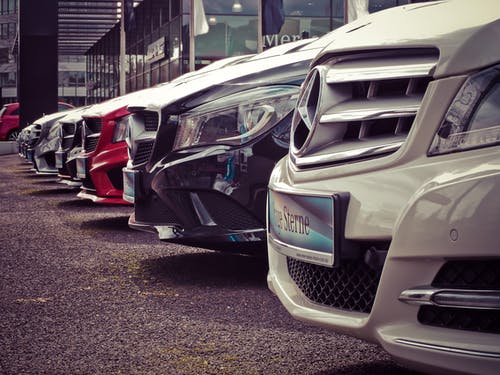Commercial and Personal Auto Insurance: What’s the Difference
A commercial auto insurance policy has more liability. It’s useful in certain situations, including:
- Use of the same vehicle by multiple employees;
- Driving clients around;
- Offering paid services such as Uber;
- Moving services;
- Delivery of equipment and various goods
- Towing other cars for cash;
- Using the vehicle to tow trailers used for business purposes;
- Driving to job sites;
- Rental services.
“The amount of coverage needed to insure commercial vehicles is often higher than a regular car or truck because of their size, the amount of damage they could cause in an accident, as well as the value of their cargo” according to Armen Khoshoryan, car accident attorney in Torrance. “For these reasons, commercial policies usually cost more than regular car insurance coverage. ”
Coverages under commercial auto insurance
There are different types of coverage under commercial auto insurance. You may need protection against claims brought about by at-fault accidents. A business may also need to reduce the risk of vandalism, theft, or collision. Typical coverages include:
- Medical coverage
- Liability coverage
- Comprehensive coverage
- Collision coverage
- Uninsured motorist coverage
Commercial auto insurance policies are available for special uses. Garages and dealerships need garage liability insurance. It offers protection against bodily injuries or property damage by vehicles at the business premises.
Companies can save time and a lot of headaches with convenient insurance products, such as fleet coverage. The plan may provide cost savings than to insure each car individually. Special plans may be offered for businesses offering peer-to-peer rentals or ride-hailing services.
Who needs commercial auto insurance?
Here are some factors that determine if you need commercial auto insurance:
1) Ownership: A vehicle owned by a corporation automatically needs a commercial auto insurance policy.
2) Vehicle type: Certain vehicles are outfitted for specialized services such as catering or towing.
3) Who uses the vehicle: For vehicles used by different co-workers, for instance, driving to job sites or delivering items may require commercial liability coverage.
4) Increasing auto insurance limits: Consider that a commercial vehicle such as a dump truck may cause more damage than a personal car. It may need higher limits.
5) Rental or car-hailing business: Personal insurance doesn’t cover using a car to transport people for money.
Factors that determine the cost of commercial auto insurance
1) Vehicles value: The more expensive the commercial vehicle is, the more expensive to insure.
2) Specifications: Heavy duty and specialized vehicles like ambulances or crane trucks may attract higher rates.
3) Discount packages: With fleet plans, businesses may reduce their auto insurance costs.
4) Level of coverage: Plans that include comprehensive or collision covers will be more expensive than standard plans.
5) Driving records: Insurance companies examine the driving records of listed drivers and charge more for drivers with prior histories of traffic violations or accidents.
6) Insurance company: Note that different insurers will provide different rates. Shopping around is the best option to find the best carriers. Consider getting quotes from insurance marketplaces like Surex. They help narrow down the most affordable providers quickly.
Is commercial auto insurance tax deductible?
Commercial auto insurance, such as Uber taxi insurance, may qualify as a business expense and is tax-deductible. There must be enough proof that the vehicle was used for business purposes. Businesses can make further deductions for vehicle use, including registration fees, repairs, or gas.
How does personal auto insurance differ from commercial car insurance?
1) Usage – Personal insurance provides coverage on a car that’s meant for personal uses. It doesn’t provide coverage for both business and personal uses, unlike commercial auto insurance.
2) Auto insurance limits – Personal insurance policies have lower limits, but you can always increase the limit.
3) Costs – Personal insurance will cost less. The factors that determine how much coverage are similar, including driver’s driving record, car’s value, age, limits, and deductibles.
Can I use personal auto insurance on a car I use for certain business purposes?
Yes, it’s entirely possible. For instance, if you’re using the vehicle occasionally for business reasons, it may not be necessary to have commercial auto insurance. But it’s best to speak to your insurance provider and ask about “occasional business use” situations.
Does a real estate agent need commercial car insurance? If a real estate company owns the car, then it may be covered under commercial auto insurance. But if it’s a personal car used for driving to showings and used for personal uses, they may still be covered under their current insurance. The distinction is not usually clear. But sometimes it’s apparent, for instance, if it’s a heavy-duty truck or passenger vehicle. Remember, the insurance doesn’t follow the driver. It follows the car.
Is personal auto insurance tax deductible?
Yes, the CRA allows self-employed individuals to make deductions on costs involved in paying for insurance. Self-employed persons must have used the vehicle to generate income. They may also make other deductions associated with fuel costs, maintenance, repairs, or leasing. The CRA advises that self-employed people should use logbooks. They should accurately track the kilometres covered when using the car for business or personal errands.
Conclusion
The main factors that determine whether to get commercial auto insurance include the type of vehicle, amount of coverage, who’s driving, and whether the vehicle is used to generate income directly. When in doubt, the insurance agent or broker can help clear up any extra questions.
